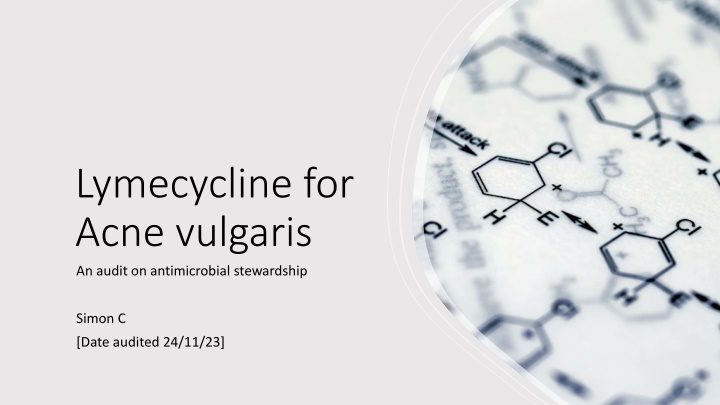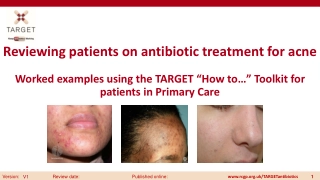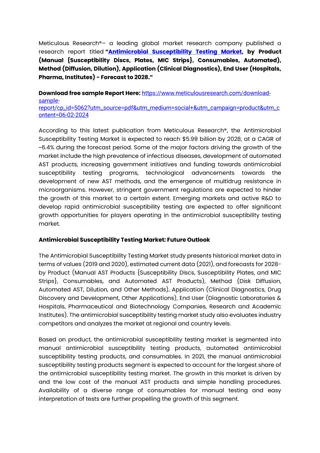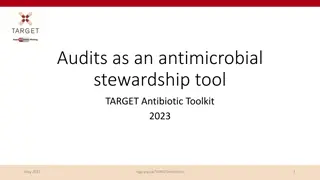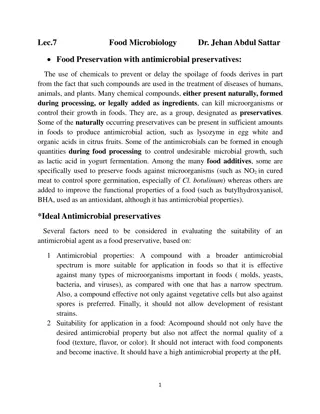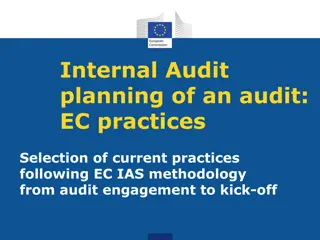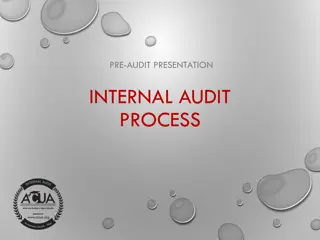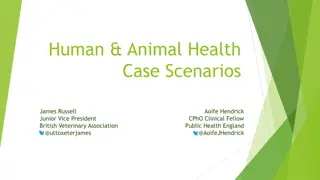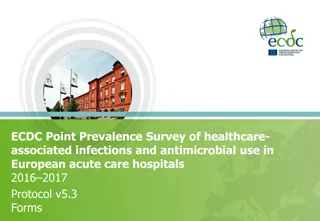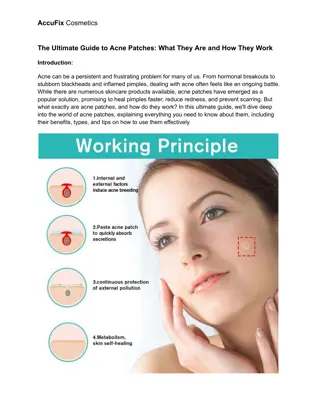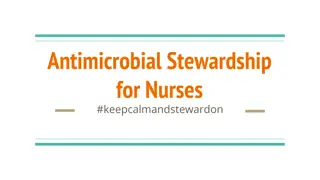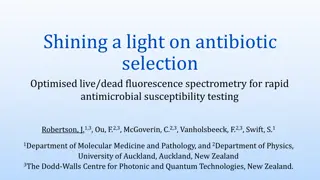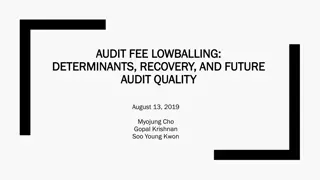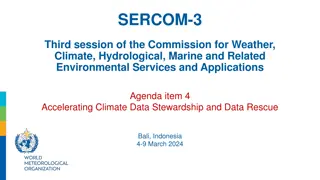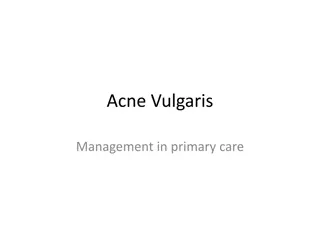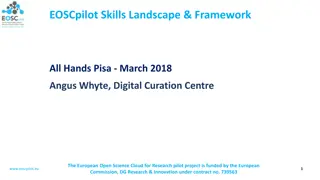Audit on Antimicrobial Stewardship in Lymecycline Treatment for Acne Vulgaris
Acne vulgaris is a common skin disease often treated with oral antibiotics like lymecycline. This audit assesses the prescribing practices, adherence to guidelines, and the need for antimicrobial stewardship in managing acne vulgaris to reduce antibiotic resistance risks. Recommendations for interventions and further audits are discussed to improve treatment outcomes and reduce unnecessary antibiotic use.
Download Presentation

Please find below an Image/Link to download the presentation.
The content on the website is provided AS IS for your information and personal use only. It may not be sold, licensed, or shared on other websites without obtaining consent from the author.If you encounter any issues during the download, it is possible that the publisher has removed the file from their server.
You are allowed to download the files provided on this website for personal or commercial use, subject to the condition that they are used lawfully. All files are the property of their respective owners.
The content on the website is provided AS IS for your information and personal use only. It may not be sold, licensed, or shared on other websites without obtaining consent from the author.
E N D
Presentation Transcript
Lymecycline for Acne vulgaris An audit on antimicrobial stewardship Simon C [Date audited 24/11/23]
Brief background Acne vulgaris (1) Common and Multi-factorial skin disease. Groups of patients have persistent acne lasting up to the age of 30 to 40 years, and sometimes beyond. Classified into Mild, Moderate and Severe. Oral antibiotics given in Moderate to Severe cases. Among adolescents and young adults, exposure to long- term antibiotics (primarily lymecycline used for acne) was much greater than for acute antibiotics, increasing the risk of antimicrobial resistance. Therefore action is needed to review antibiotic use and reduce unnecessary exposure to long-term antibiotics(2)
Relevant Management guidelines (1) Topical treatments for all severity levels. Systemic treatment at Moderate to Severe levels Oral antibiotics (Lymecycline or Doxycycline) should be given as a 12-week course with either: Topical Adapalene w/ Topical Benzyl peroxide OD NOCTE Topical azelaic acid BD NICE recommends a 12-week review and a maximum 6-month duration of antibiotic treatment.
Acne vulgaris prescribed Lymecycline within 12 weeks - 32 patients Prescription length as per guidelines Concurrent treatment as per guidelines 1 Yes (3.6%) (Azelaic Acid) 4 Yes (14.3%) (12 weeks) 3 No (10.7%) (No mention of topical treatment) 28 Included in study 11 Yes (39.3%) 1 (Azelaic Acid) 10 (Epiduo / Adapalene) 24 No (85.7%) 19 (8 weeks) 1 (6 weeks) 4 (4 weeks) 3 Active dermatology referral 13 No (46.4%) 3 (No mention of topical treatment) 6 (Treclin) 3 (Benzyl peroxide w/ Clindamycin) 1 (Erythromycin w/ Zinc acetate) Summary 1 Out of practice 04/28 (85.7%) Wrong Length 16/28 (57.1%) Wrong Topical Carlisle Healthcare Date audited: 24/11/22
Limitations Does not measure appropriateness of antimicrobial therapy Concordance with guidelines used as a surrogate marker of appropriateness May be legitimate reasons that guidelines are not followed for a specific patient Unable to intervene within this audit cycle Intervention and re-audit needed to close audit cycle and measure change
Possible Interventions Recommending guideline-concordant antimicrobial therapy where current therapy is non-concordant Encourages guideline-concordant prescribing or documentation of reasons for diverging. An opportunity for prescriber education regarding locally endorsed guidelines. Contacting the doctor attending to confirm an unclear or undocumented indication Improves communication regarding antimicrobial therapy, encouraging clear documentation of antimicrobial indications
Further interventions Implement change & Re-audit in 6m time Recommendations from prescribing team: Further breakdown of data How many times have people been repeatedly prescribed abx Recall process ensures review, not staying on first presentation Prescribe as Acute rather than repeat Encourages monitoring of effectiveness, discourages repeat Abx prescriptions. Measures effectiveness of intervention
1. Recommendations: Acne vulgaris: Management: Guidance [Internet]. [cited 2023 May 15]. Available from: http://www.nice.org.uk/guidance/ng198/chapter/Recom mendations 2. Lown M, Mckeown S, Stuart B, Francis N, Santer M, Lewith G, et al.. Prescribing of long-term antibiotics to adolescents in primary care: a retrospective cohort study. British Journal of General Practice. 2021;71(713):e887 94. www.pcds.org.uk/clinical-guidance/acne-vulgaris www.cec.health.nsw.gov.au/__data/assets/pdf_file/0003 /258717/5x5-Antimicrobial-Audit-User-Guide.pdf Thank you
